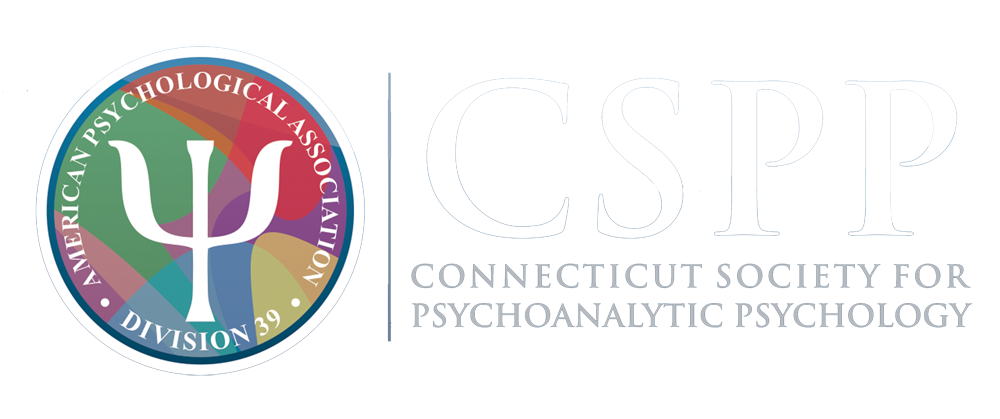The Connecticut Society for Psychoanalytic Psychology
presents
Zoom Conference
Joyce Slochower, PhD, ABPP
Sequels:
A second look at non-sexual friendships between ex-analyst and ex-patient
Saturday December 2, 2023
11am - 1 pm

Photo by Meriç Dağlı on Unsplash
Zoom Clinical Conference
A Zoom link will be sent to all registrants the day before the event.
2 Continuing Education Credits
2 CECs (Division 39)
2 CECs (NASW): Approved for Social Work, LPCs & LMFTs
Conference Schedule
Sign-in 10:45 – 11:00
Presentation 11:00 – 1:00
Our termination ideal stands at a considerable distance from clinical reality; “complete” terminations are rare indeed. This gap is perhaps best explored by considering sequels—instances in which ex-analyst and ex-patient become nonsexual friends post treatment. The meanings and implications of these post-termination friendships—their complexities, problematic edges, serious difficulties, and the potential therapeutic benefit of this deviation from the termination ideal—are illustrated using the unfinished story of a good treatment and its yet-to-be-defined ending. I aim to interrogate our model of termination and to elucidate the complexities of treatment sequels for both patient and analyst.
Joyce Slochower PhD is Professor Emerita of Psychology at CUNY; Faculty, NYU Postdoctoral Program, Steven Mitchell Center, National Training Program, & PINC in San Francisco. Second Editions of her books, Holding and Psychoanalysis: A Relational Perspective and Psychoanalytic Collisions were released in 2014. She is co-Editor, with Lew Aron and Sue Grand, of De-Idealizing Relational Theory: a Critique From Within and Decentering Relational Theory: A Comparative Critique (2018, Routledge). Her forthcoming book, Psychoanalysis and the Unspoken is in press. She is in private practice in New York City where she sees individuals and couples and runs supervision and study groups.
Learning objectives
At the end of this workshop participants will be able to
1) describe the traditional termination ideal
2) describe the clinical function of the termination process
3) describe the risks and potential benefits of establishing a post-treatment friendship
References
Bergmann, M.S. (1997). "Termination: The Achilles heel of psychoanalytic technique." Psychoanalytic Psychology 14:163-174.
Bonovitz, C. (2007). "Termination never ends: The inevitable incompleteness of psychoanalysis." Contemporary Psychoanalysis 43:229-246.
Craige, H. (2002). "Mourning analysis: The post-termination phase." Journal of the American Psychoanalytic Association 50:507-550.
Grand, S. (2009) "Termination as necessary madness." Psychoanalytic Dialogues 19:723-733.
Participants
The conference is appropriate for professionals interested in the practice of psychoanalysis and psychoanalytic psychotherapy. The instructional level of this conference is intermediate.
Continuing Education
This conference has been approved for 2 continuing education credits by Div. 39 and from NASW-CTDivision 39 maintains responsibility for this program and its content.
If continuing education credit is desired, please mark the appropriate box when you register. In addition, you must attend the conference in its entirety, and complete a post-conference online survey. The link to the survey will be made available immediately upon conclusion of the conference. You should receive your certificate of attendance later that same day.
To Register and Pay
Members - remember to log in to for member discount.
If you do not log in, you won't be recognized as a member.
All registrations must be made and paid for online.
You can pay with credit or bank card or PayPal account.
PayPal is our credit card processor but you do NOT need a PayPal account to use your credit card on our website if accessed via a computer web browser. Do remember to scroll down and click on Pay by Credit Card on the payment screens.
However, if you are using a phone, you will need to register through the WildApricot app, which is designed for phone use and will allow you all the options. The app Wild Apricot for Members is available in your App Store for free. Just log in with your usual CSPP email and password.
Refunds will be given in full until the Monday before the conference. To receive a refund cancel your registration online by going to your profile in the upper right corner, select "My Event Registrations" click on the event, then click on "Cancel Reservation." Questions/problems, please contact the registrar, Christopher Greene, LCSW.
Scholarship registrants: if you need the registration code, contact William Hartmann, MFT.
Members and Contacts - Need to update your information?
Please login to your profile, then click under your name at View Profile, tomake any changes or additions, including changes of email addresses. If you have problems, contact Callie Jowers.
CSPP Membership: Membership is open to all mental health professionals ($85 annual dues); early career (less than 7 years since degree, $50 annual dues); retirees ($30 annual dues); and graduate students ($20 annual dues). For further information on membership in CSPP please click here: CSPP
Division 39 is committed to accessibility and non-discrimination in its continuing education activities. Participants are asked to be aware of needs for privacy and confidentiality throughout the program. If program content becomes stressful, participants are encouraged to process these feelings during discussion periods. If participants have special needs, we will attempt to accommodate them.
Please address questions, concerns and any complaints to Ashley Warner, LCSW, BCD.
